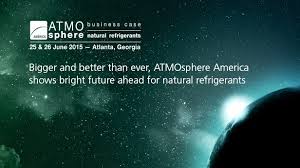Food giants to use hydrocarbon-based refrigeration
USA – Food industry titans McDonalds, Starbucks and Red Bull along with system supplier True Manufacturing gathered at ATMOsphere America 2015, organised in Atlanta on 25-26 June to discuss the trends and future of the food service industry. One of the major talking points of the conference was the rising trend of the use of hydrocarbon-based refrigeration in the food service industry.
Roy Buchert, McDonald’s Global Energy Director explained that his company had ambitious plans to reduce its environmental impact which include moving toward the use of natural refrigerants. Mr Buchert states that this change of refrigerants is not only better for the environment but it also makes long-term business sense. McDonalds have already begun scaling up its use of small refrigeration equipment (using 150g or less of R290) in Europe, which the company says is so far proving to be 38% more energy efficient. The company is also pilot testing medium refrigeration systems in Europe (walk-ins, milkshake machines) using natural refrigerants and has stated that its ultimate goal is to use natural refrigerants for all its HVAC systems. In Denmark McDonald’s has even gone as far as pilot testing an entirely HFC-free store.
However the U.S. food service industry currently lags behind its European counterpart in its use of natural refrigerants as it is only recently that natural refrigerant-based, smaller equipment has been released onto the market. Despite this tardiness in adopting natural refrigerants, the market for hydrocarbon equipment in the U.S is expected to develop quickly.
“Things are moving much faster than we had thought, we are still in a good position and we are eager to see things move forward,” declared Buchert.
In Buchert’s considered opinion, the conversion to natural refrigerants cannot realistically expected to be an overnight project, particularly as the cost of suddenly switching to natural refrigerants in all HVAC&R equipment would be extremely prohibitive. Instead the company has decided to focus on replacing its older equipment and is installing green refrigeration solutions in its new restaurants.
Buchert ended his presentation with a call to arms, demanding that the industry take the necessary actions to overcome the challenges facing it, including local regulations, lack of trained service infrastructure and the higher initial costs of natural refrigerant-based equipment.














